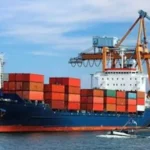Paul Kagame, the leader of Rwanda, has long denied any involvement in supporting Tutsi militias in eastern Democratic Republic of Congo. However, recent events have made it clear that Rwandan-backed M23 rebels have taken control of Goma, a major city in eastern Congo, prompting international concern.
The United States and the United Nations have expressed deep worry over the situation, with reports indicating that Rwandan-backed militias, aided by thousands of Rwandan troops, are expanding their influence in eastern Congo. This has led to clashes, casualties, and the capture of key mining towns, such as Nyabibwe, raising fears of a regional conflict.
Rwanda, known for its remarkable recovery from the 1994 genocide, risks damaging its reputation for stability and development. The country has attracted investments and partnerships, including deals with major sports teams and companies. However, Kagame’s actions in Congo could tarnish Rwanda’s image and jeopardize its progress.
Despite Rwanda’s economic successes, Kagame has faced criticism for his authoritarian rule and alleged involvement in targeted assassinations. Some observers believe that Rwanda’s PR efforts have overshadowed concerns about Kagame’s governance and foreign policy decisions.
Kagame’s leadership style, shaped by the trauma of the genocide, has been a source of both admiration and criticism. While Rwanda has made significant strides in economic growth and life expectancy, Kagame’s approach to governance and regional influence has raised questions about his priorities and tactics.
The recent escalation in eastern Congo has exposed Rwanda’s strategic interests in the region, particularly in the mining sector. Reports of mineral smuggling and accusations of collaboration with armed groups have heightened tensions between Rwanda and Congo, threatening stability and economic cooperation.
As Kagame faces international scrutiny and comparisons to authoritarian leaders like Putin, he remains defiant, emphasizing the need to protect Rwanda’s security and interests. While some analysts believe Kagame is taking a risky gamble by escalating tensions in Congo, others see it as a calculated move to secure access to critical resources.
The situation in Congo underscores the complex dynamics of regional politics and resource competition in Africa. As Rwanda navigates its role in the conflict, the international community watches closely, hoping for a peaceful resolution that preserves stability and cooperation in the Great Lakes region.








